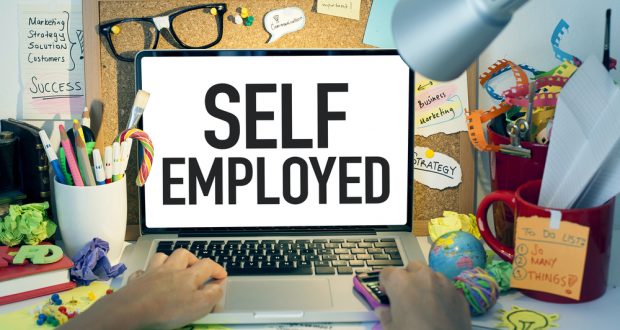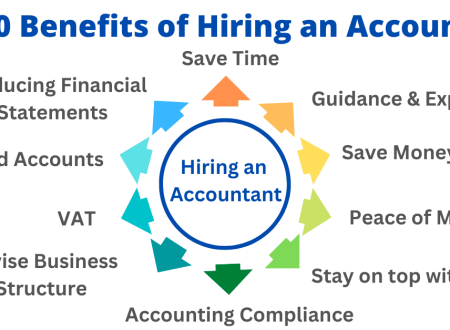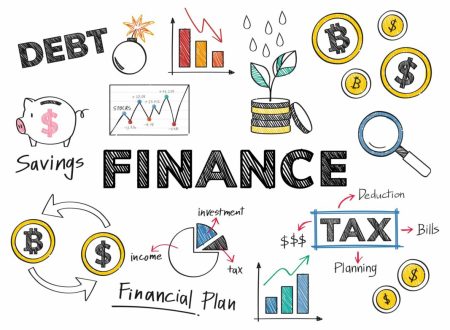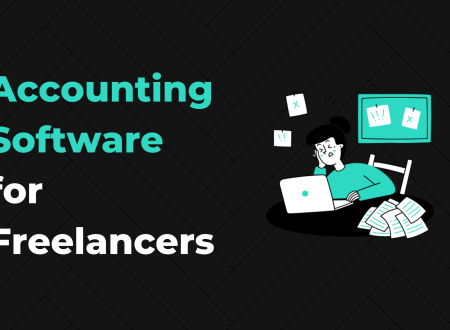Self-employment is on the rise, and it has been for quite some time. Figures show that since 2001, we’ve seen more than a million new self-employed workers move over from traditional forms of employment. That puts the current UK’s working population at over 15% self-employed. Self-employment appears to be a very attractive opportunity.
With that in mind, you may want to know more about how to go self-employed yourself.
Think this might be the career path you should follow? Anyone can go self-employed and, at TT Accountancy, we’re here to help make your dream become a reality. This blog explores all you need to know about going self-employed and tips for success!
What Does It Mean to Go Self-Employed?
Before you think about how to go self-employed, it’s important to consider what it actually means. To be self-employed means you are the business. You make the decisions; you decide what you do; you supply the goods or services. You will work directly with customers and clients to build revenue, as well as partners and suppliers to acquire resources.
Being self-employed can be both exciting and nerve-wracking. Exciting because you essentially have all the power. Nerve-wracking because the buck will always stop with you.
What Are the Benefits of Going Self-Employed?
At TT Accountancy, our chartered accountants aren’t surprised to see self-employment on the rise. Prospects often ask us about how to go self-employed, with many citing an abundance of reasons as to why they’ve chosen this particular career path. So why should you consider going self-employed? What makes millions take the plunge and start their own business?
- Flexibility — Be your own boss, make your own schedule and fit work around you. Of course, you have responsibilities as a self-employed worker, but you aren’t tied to any work policy or hours schedule. You take on work, and you complete it to your timetable, and your client’s timetable. Self-employed workers have much more control over how and when they work.
- Income Development — Survey data shows self-employed workers enjoy an average of £5000 more on their paycheck than traditionally employed workers. Working for yourself full-time opens up a variety of earning opportunities unavailable to more restrictive types of employment, and thus can be more lucrative.
- Career Fulfilment — Studies support the idea that self-employed workers are the happiest kind of workers. Not only do they avoid office politics, but they can also focus their career on things that they are passionate about, and are good at doing. Self-employed workers are more satisfied in their roles, and find their job more fulfilling, as they can make it all they want it to be.
- Tax Savings — Self-employed workers have options for tax savings that others cannot access. If managed correctly, you can save hundreds or even thousands on your tax bill. Why not send an email to our accountants and ask about how you could save?
How to Go Self-Employed: What to Think about First
When looking at how to go self-employed, there are a few things you need to think about first before you take that all-important step of registering as self-employed and starting your business. These include:
- Are You Ready? — Being self-employed is very rewarding, but success requires time, investment and a steady guiding hand. You need to prepare for the pressures you may face on the way to business achievement. Are you ready to give it everything you have? It’s not going to be easy, but it’ll pay off if you do it right.
- What Are Your Startup Costs? — You have to spend money to make money. Know what your business will cost to start, and make sure you have the financial capital available to get things off the ground.
- What Is Your Business Plan? — It seems obvious, but some self-employed workers get so wrapped up in the romance of the self-employed lifestyle that they forget about a simple business plan. You have to know things like where you are going to find funding, where you are going to find customers, how you are going to market your goods and services, how much to charge for your business product, and what kind of resources you’ll need. Make sure you have a solid business plan. If you’d like help with creating or revising a business plan, get in touch with our business experts at TT Accountancy.
- Can You Handle Money? — It is a legal obligation of all self-employed workers in the UK to maintain accurate financial information for taxation, and file self-assessment tax returns. If you aren’t good with money management, this is something to consider carefully. Happily, you don’t need to be good with money, as you can hire tax accountants to do this for you.
How to Go Self-Employed: Register as Self-Employed/Sole Trader
Technically, you can start work and earn money from clients without notifying anybody. This is, however, illegal and will result in serious consequences if discovered. Failure to disclose self-employed earnings is taxation fraud and carries heavy fines and even prison sentences.
It’s easy to avoid any legal action, however. All you have to do is register as a self-employed worker with HMRC. There are two ways to do this; you can either register online or via post. You have to fill in a form providing HMRC with your details and details of self-employment, and you are set. Note, you don’t need to provide anything relating to finance, as this entered in your tax return. Registering is about letting HMRC know you intend to earn as a self-employed worker and therefore will be submitting a self-assessment tax return.
Following registration, you will receive a UTR (Unique Tax Reference) code and logins for the HMRC online portal. That is all you need to do at this point. You are now on the system as a self-employed worker in the United Kingdom. At the end of the tax year, you will be prompted to submit your return, and you must do so if you don’t want to face penalty charges.
As with all tax-related processes, there is a caveat to registering as a self-employed worker. If you earn less than £1000 while self-employed, you do not need to notify the government or register with HMRC.
How to Go Self-Employed and Succeed: Top Tips to Survive and Thrive
What most of our clients want to know is how to go-self employed and succeed in business. Anyone can be a registered self-employed worker, but not everyone makes it work.
Over the years, we’ve collaborated with many self-employed individuals, and have seen some genuine success stories. We believe anyone with the right mindset and skills can achieve great things as a self-employed worker. While it’s often the thing that makes you unique that allows your business to go further than others, there are a few basic universal practices that can form the foundations from which your idea can grow.
So how do you go self-employed and succeed? You should make sure you develop the following:
- Good Money Management — Good control of your finances isn’t just important for HMRC. If you monitor your money well, you can use what you know to make well-informed decisions and keep your business afloat.
- A Powerful Business Network — 80% of professionals state that networking is essential for business success, and this makes total sense. Your partners are people; your investors are people; your customers are people. Create and develop your networks to find new opportunities, build business exposure and open up new streams of revenue.
- Exceptional Brand Loyalty — Loyal customers are vital customers. For small businesses, customer acquisition can be tricky, time-consuming and expensive. When you onboard clients, you want to retain them for maximum ROI. Make an effort to gather feedback from both satisfied and dissatisfied customers, develop great customer service, introduce reward systems, and be adaptive to the wants and needs of your current customers to make sure they don’t go elsewhere.
- Long-Term Business Strategy — Where are you going next? What does the future of your business look like ten years down the line? A business plan that gets you going is vital, but so is a strategy for long-term development if you want to be around for years to come. Identify how you are going to ensure stability and sustainability, and areas you can move into to grow. Long-term thinking is key to avoiding plateaus and stagnation.

 ?>
?>






